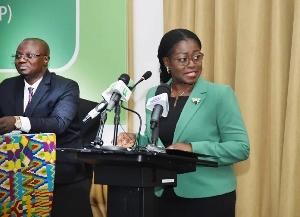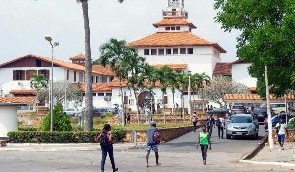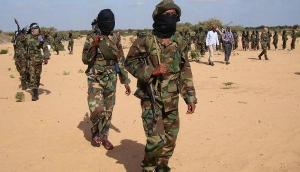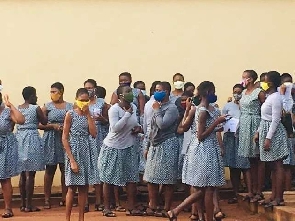The Second Deputy Governor of the Bank of Ghana, Elsie Addo Awadzi, has emphasised the bank’s dedication to supporting the completion of the National Risk Assessment (NRA) and the Third Round Mutual Evaluation exercise.
This affirmation was made at the Pre-Assessment Workshop and Launch of the National Risk Assessment Exercise for Ghana on Money Laundering, Terrorism Financing, and Financing the Proliferation of Weapons of Mass Destruction (ML/TF/PF). It was held in Accra.
Mrs. Awadzi outlined the significance of the ongoing NRA, underscoring its role in identifying and assessing risks associated with money laundering, terrorist financing, and proliferation. The exercise aims to evaluate changes in the nation’s risk profile, enabling the implementation of appropriate mitigating measures.
The results of the NRA are expected to guide policymakers in tightening existing gaps in anti-money laundering, counter-terrorism financing, and proliferation financing. She said that this effort to strengthen the national regime is crucial for maintaining financial stability and economic growth.
In adherence to Financial Action Task Force (FATF) recommendations, Ghana initiated its first ML/TF risk assessment in 2014, with subsequent updates in 2016 and 2018. The upcoming NRA aligns with international standards and fulfils the obligation outlined in the Anti-Money Laundering Act of 2020 (Act 1044).
Addressing the gathering, Mrs. Awadzi highlighted the persistent threats ML/TF/PF activities posed to financial stability, economic growth, and regional peace and security. She said the aim is to position the country as a regional leader in good governance.
The second deputy governor underscored the importance of the NRA as a precursor to the Third Round Mutual Evaluation scheduled for 2025 by FATF. To be conducted by stakeholders, the assessment will utilise the World Bank’s assessment tools to comprehensively identify, assess and mitigate ML/TF/PF risks.
Reflecting on past challenges, Mrs. Awadzi recalled Ghana’s grey-listing by FATF in 2018 due to significant deficiencies in its AML/CFT/PF regime. The subsequent blacklisting by European Union and UK authorities had substantial repercussions on domestic financial dealings. However, she emphasised that extensive reforms and coordinated efforts led to the country’s removal from adverse listings.
As Ghana approaches the Third Round of mutual evaluation in 2025, Mrs. Awadzi stressed the need for sustained efforts to maintain an effective AML/CFT/PF regime. The ongoing NRA presents an opportunity for critical self-assessment, considering the evolution of the financial system and key sectors since the last evaluation.
Acknowledging the resource-intensive nature of the NRA, Mrs. Awadzi called for cooperation between government institutions, private sectors and all stakeholders. Timely and complete submission of information is deemed crucial for the success of the exercise.
Business News of Wednesday, 14 February 2024
Source: thebftonline.com













